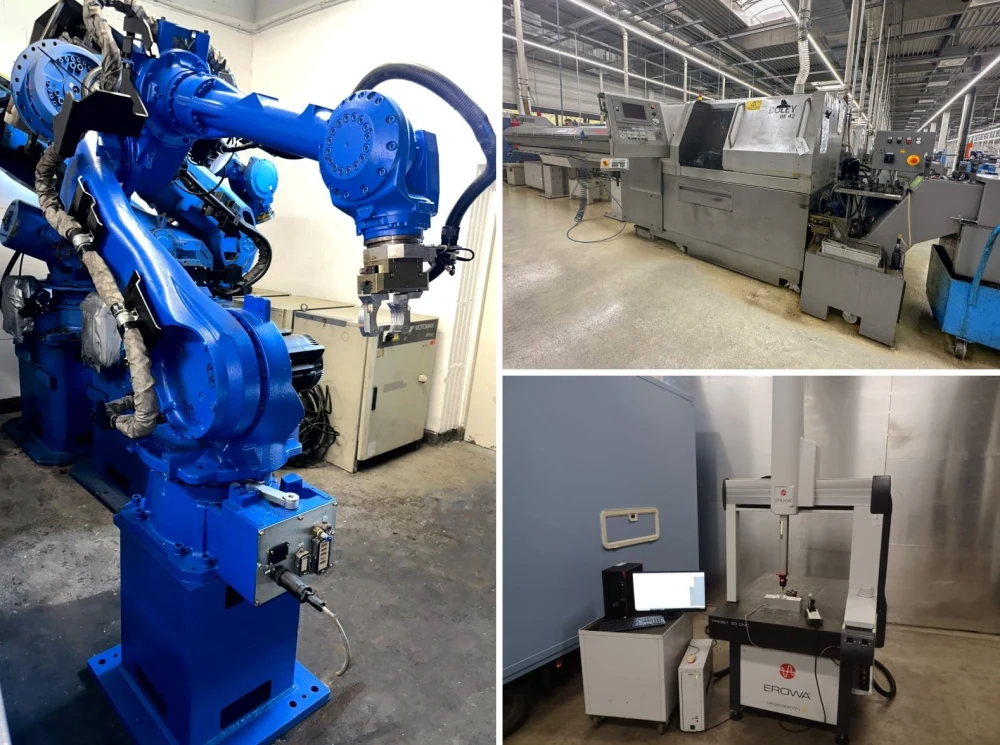The role of used machinery in Lean Management

Lean Management is especially important in turbulent economic times as it boosts a company’s efficiency and competitiveness through process optimisation. Used machinery can also play a role in this strategy, offering a cost-effective way to promptly address production bottlenecks and optimise the machinery pool.
In economically turbulent times, one corporate strategy comes into particular focus: Lean Management. This approach aims to increase operational efficiency by streamlining processes. This, in turn, boosts both the resilience and competitiveness of the company, which is especially crucial in times of economic crisis.
The definition: Lean Management encompasses all approaches to make the entire value chain in industrial production efficient. Various theories exist in the literature. They all agree that Lean Management focuses on customer orientation, leveraging one’s own strengths, and the continuous optimisation of processes and quality. But how does the concept of used machinery fit into this efficiency-oriented philosophy? In fact, the purchase and sale of used machinery can ideally implement the principles of Lean Management in operational practice.
Used machinery in Lean Management approaches
Initially, value stream mapping is the central tool in Lean Management, where all involved processes are visualised in their current state, making them transparent. This reveals the flow of materials and information within a company, thereby uncovering hidden inefficiencies. In the production area, for example, this could be unnecessary material inventories or expensive rework. The company’s machinery also plays a role. With a detailed value stream mapping, bottlenecks in machine utilisation can be identified and resolved through restructuring or optimisation.
The restructuring of the machine park is part of Lean Management’s inventory management approach. On the one hand, it involves maintaining only the actually needed number of machines. Selling off unnecessary equipment not only streamlines the machinery but also creates space for more efficient product transport routes and budgets for other optimisations. On the other hand, the acquisition of used machines provides a cost-effective way to scale production as needed promptly, without increasing capital commitments in new facilities.
Hand in hand with inventory management is process optimisation. In this regard, used machinery can contribute in both the production and the operational economic aspects. Moreover, from an economic standpoint, buying used is highly efficient. Used machinery, usually immediately available, tends to be cost-effective, enabling faster amortisation.
Quality assurance is another critical aspect of Lean Management, as companies focus on quality while simultaneously focusing on quantity. Used machinery can also support this. The used machinery market also deals in high-quality, sometimes almost new equipment that can meet the high demands of corporate customers.
A practical example
In this context, Surplex, an industrial auction house, offers a significant platform for trading used machinery. Across over 800 auctions, more than 55,000 industrial goods change hands – especially machines for metal and woodworking, as well as the construction industry.
On 26/09/2023, one of these auctions will sell over 400 high-quality machines and inventory items for plastic and metal processing. Featuring a diverse range of metalworking machines, such as vertical machining centres, CNC lathes, and tool milling machines, as well as plastic injection moulding machines and industrial robots for automation, the auction provides an ideal opportunity for companies to flexibly and cost-effectively expand or optimise their machine parks in line with Lean Management principles. These industrial machines are designed to seamlessly integrate into existing production workflows and contribute to efficiency and process optimisation through their automation capabilities.






